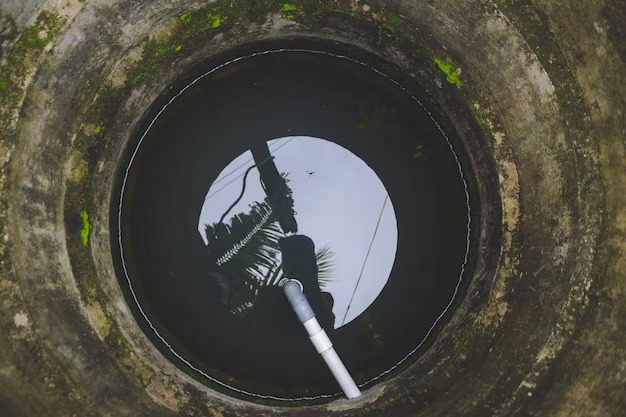drain, septic tank, tank, sewage, pump, grease trap, inspection, drainage, septic tank service, plumbing services, septic repair, septic service, sewer, septic services, septic inspections, septic company, septic repairs, pipe, waste, sump pump, wastewater, customer, central florida, zephyrhills septic, quality septic, septic cleaning, septic contractor, soil, air conditioning, vehicle, brake, engine, transmission, warranty, manual transmission
How much does it cost to have your septic tank pumped?
The cost to have your septic tank pumped typically ranges from $200 to $500, depending on factors such as tank size and location. Regular pumping helps prevent issues and maintain system efficiency.
How often should a septic tank be pumped in Florida?
The frequency of septic tank pumping in Florida typically ranges from every 3 to 5 years, depending on factors such as household size, water usage, and tank size. Regular maintenance is essential to prevent system failure and costly repairs.
How much does it cost to pump a septic tank in Florida?
The cost to pump a septic tank in Florida typically ranges from $200 to $500, depending on the tank size and location. Regular maintenance can help prevent more expensive repairs down the line.
What are the signs that your septic tank is full?
The signs that your septic tank is full include slow-draining sinks and toilets, unpleasant odors around the tank area, gurgling sounds in plumbing, and standing water or puddles above the tank drain field.
What factors influence septic tank pumping costs?
The factors that influence septic tank pumping costs include the tank's size, the frequency of pumping required, accessibility of the tank, and local service rates. Additionally, any necessary repairs or maintenance can also affect overall costs.
Are there discounts for multiple septic services?
Discounts for multiple septic services are available at Kelley’s Septic Service. By bundling services like inspections and repairs, customers can enjoy savings while ensuring their septic system remains in optimal condition.
How long does septic tank pumping take?
The duration of septic tank pumping typically takes between 30 minutes to a few hours, depending on the tank's size and the extent of waste buildup. Regular maintenance can help streamline this process.
What equipment is used for septic pumping?
The equipment used for septic pumping includes a vacuum truck equipped with a high-capacity pump, hoses for suction and discharge, and specialized tools for accessing and cleaning septic tanks. This ensures effective removal of waste and maintenance of your septic system.
Can I pump my septic tank myself?
Pumping your septic tank yourself is not recommended. It requires specialized equipment and knowledge to safely complete the task and avoid potential damage to the system. For proper maintenance, it’s best to hire a professional service like Kelley’s Septic Service.
What are the risks of neglecting septic maintenance?
The risks of neglecting septic maintenance include system failures, costly repairs, and environmental contamination. Regular inspections and maintenance are essential to ensure optimal functionality and prevent health hazards associated with septic system issues.
How can I find reliable septic service providers?
Finding reliable septic service providers involves researching local companies, reading customer reviews, checking for licensing and insurance, and asking for recommendations from friends or family to ensure quality and trustworthiness.
What are common septic system problems?
Common septic system problems include clogs, slow drainage, sewage backups, and system odors. Regular inspections and maintenance can help identify these issues early, ensuring your system operates efficiently and prevents costly repairs.
Is septic tank pumping required every year?
Septic tank pumping is not required every year for all systems. Most homeowners typically need to pump their tanks every 3 to 5 years, depending on usage and tank size. Regular inspections help determine the appropriate schedule for your specific needs.
What happens during a septic tank pumping service?
During a septic tank pumping service, the technician removes the accumulated sludge and scum from the tank using specialized equipment, ensuring proper waste management and preventing system backups. This routine maintenance helps maintain the efficiency and longevity of your septic system.
How do I prepare for a septic service visit?
Preparing for a septic service visit involves ensuring clear access to your septic system, removing any obstacles or debris, and informing the service provider of any known issues or concerns. This helps facilitate a thorough inspection and efficient service.
What permits are needed for septic services?
The permits needed for septic services typically include a septic system installation permit and may require additional permits for repair or modification, depending on local regulations in Zephyrhills, FL. Always check with local authorities for specific requirements.
Are there environmental regulations on septic systems?
Environmental regulations on septic systems exist to protect public health and the environment by ensuring proper installation, maintenance, and operation. Compliance with these regulations helps prevent contamination of groundwater and surrounding ecosystems.
Can a full tank cause plumbing issues?
A full tank can indeed cause plumbing issues. When the septic tank reaches capacity, it may lead to sewage backups, improper drainage, and added pressure on your plumbing system, potentially resulting in costly repairs and health hazards.
What should I do if my tank overflows?
If your tank overflows, it’s crucial to act quickly. First, stop using water in your home to prevent further overflow. Then, contact Kelley’s Septic Service immediately for emergency assistance and an inspection to address the issue effectively.
How do I identify septic tank problems early?
Identifying septic tank problems early is crucial for maintaining system health. Look for signs such as slow drains, unusual odors, wet spots in your yard, or gurgling sounds in your plumbing. Regular inspections can also help catch issues before they escalate.
What materials should not go into a septic system?
Materials that should not go into a septic system include grease, oils, non-biodegradable items (like plastic or sanitary products), chemicals, and excessive food waste. Proper disposal of these materials helps maintain your system's function and longevity.
What maintenance is required after septic pumping?
After septic pumping, regular maintenance is essential to ensure optimal performance. This includes routine inspections, mindful water usage, and avoiding harmful chemicals to prevent clogs and system damage. Regular pumping, typically every 3 to 5 years, is also advisable.
How often should I inspect my septic system?
Inspecting your septic system regularly is crucial for its optimal functioning. It's recommended to perform inspections every 1 to 3 years, depending on usage and system type, to prevent costly repairs and ensure longevity.
Can my septic tank affect my drinking water?
The impact of your septic tank on drinking water is significant. If not properly maintained, a failing septic system can leak harmful bacteria and contaminants into the groundwater, potentially compromising your drinking water quality.
What is the lifespan of a septic system?
The lifespan of a septic system typically ranges from 20 to 40 years, depending on factors such as maintenance, usage, and soil conditions. Regular inspections and proper care can significantly extend its longevity.
What are the benefits of regular septic maintenance?
The benefits of regular septic maintenance include preventing costly repairs, extending the lifespan of the system, and ensuring efficient functioning. Routine inspections and maintenance help identify issues early, keeping your septic system in optimal condition and protecting your property.
How is the septic tank pumping process done?
The septic tank pumping process involves locating the tank, removing the access lid, and using a vacuum truck to extract the sludge and scum buildup. This ensures efficient system operation and prevents future backups.
What types of septic systems are there?
The types of septic systems vary based on design and functionality. Common types include conventional gravity systems, aerated systems, and mound systems, each tailored for specific soil conditions and property needs.
How do I know if I need septic service?
Knowing when you need septic service is important. Signs to look for include slow drains, unpleasant odors, sewage backups, or lush patches of grass above the septic tank. If you notice any of these issues, it's time to contact Kelley’s Septic Service for assistance.
Are there alternatives to conventional septic systems?
Alternatives to conventional septic systems include aerobic treatment units, mound systems, and composting toilets. These options can be effective in specific conditions, particularly where space is limited or soil is unsuitable for traditional systems.
sewage cleanup and sanitation in zephyrhills, septic service zephyrhills fl, septic tank pumping zephyrhills, zephyrhills septic, septic tank cleaning, septic tank services near me, septic tank cleaning near me, septic tank pumping near me, septic replacement near me, septic repair

